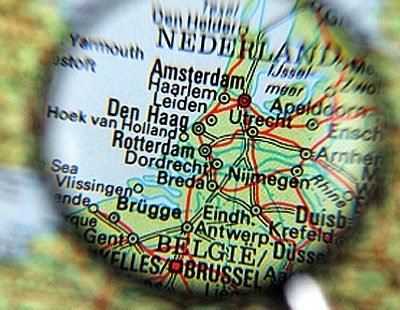A demonym is any name derived from a place that helps describe people who live there. Californians are people who live in California. Frenchmen live in France. And so on. But what about the demonyms that are seemingly random?
How the heck did people from the Netherlands become the Dutch, for example?
Where Dutch came from
Before we dig into this demonym, there are three terms we need to define: Holland, the Netherlands, and Dutch. The Old English cousin to Dutch, thiod or theod, simply meant “people or nation.” (This also helps explain why Germany is called Deutschland in German.)
Over time, English-speaking people used the word Dutch to describe people from both the Netherlands and Germany, and now just the Netherlands today. (At that point in time, in the early 1500s, the Netherlands and parts of Germany, along with Belgium and Luxembourg, were all part of the Holy Roman Empire.) Specifically the phrase High Dutch referred to people from the mountainous area of what is now southern Germany. Low Dutch referred to people from the flatlands in what is now the Netherlands.
Within the Holy Roman Empire, the word Netherlands was used to describe people from the low-lying (nether) region (land). The term was so widely used that when they became a formal, separate country in 1815, they became the Kingdom of the Netherlands. The word Holland literally meant “wood-land” in Old English and originally referred to people from the northern region of the Netherlands. Over time, Holland, among English speakers, came to apply to the entire country, though it only refers to two provinces—the coastal North and South Holland—in the Netherlands today. Got all that?
Other demonyms
In some cases, the demonym preceded the place name. For example, Finland is the place where the Finns live, just as Germany is the place where the Germans live. The people came before the official government and place name. (Parts of what we call Germany was called Prussia until 1932.)
In English we denote place of origin by suffixes. The most common suffixes that denote place are: -(a)n (Chicagoan), -er (New Yorker), -ese (Chinese), -ian (Norwegian), and -ish (English).
Where did these suffixes come form? Latin, of course. -ish actually comes from Old English, which is why citizens of the British Isles have -ish demonyms: Scottish, Welsh, English, etc. The other suffixes came from Latin, though they each convey slightly different senses. The suffix -ese most directly meant “belonging to or originating in a place,” while -(a)n and -ian are variations on the same suffix meaning “belonging to.” The suffix -er was used principally in the sense of “one having to do with a thing,” as in lawyer or villager. As with most vocabulary in English, they all now coexist and serve the same purpose.
It’s also important not to confuse demonyms with adjectives. You can listen to an Argentinian song, but it is sung by an Argentine.
Here are a few of our other favorite exceptions to the rule:Kiwi
Neapolitan
Liverpudlian
Cypriot
Czech
Turk
Buckeye
Hoosier
Spaniard
Greek
Swiss
Swede
Uzbek












